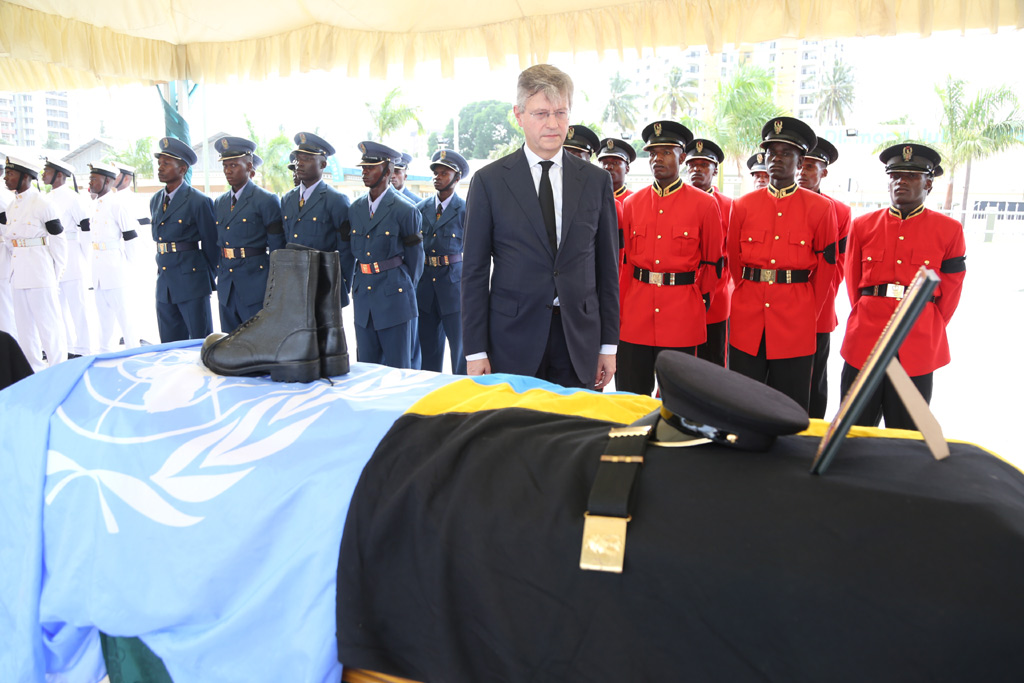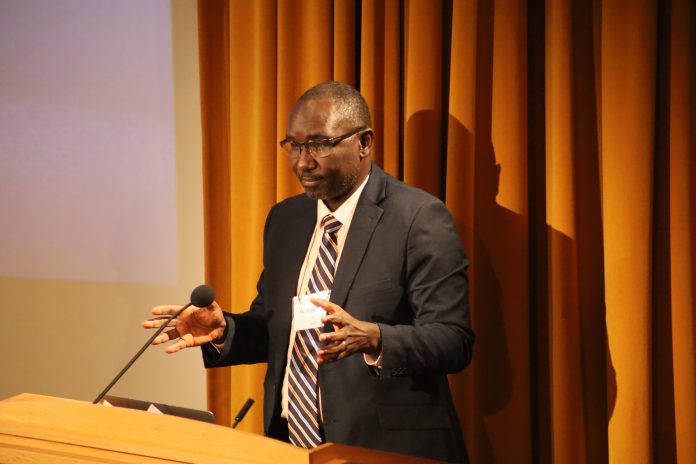
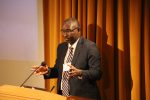
Nongovernmental organizations (NGOs) would be a lot more effective if they included more people from the communities they serve in their leadership, according the director of an NGO based in Democratic Republic of Congo (DRC).
Abraham Leno, who was born in Sierra Leone and spent 11 years with his family as a refugee in Guinea, is now the executive director of the Eastern Congo Initiative (ECI) which was founded to invest in local community organizations in order to tap the potential of the people of DRC and create opportunities to market their product.
“We believe that the best solutions to the world’s problems come from the brilliance of the people who live through them,” said Leno
Leno was the keynote speaker at this year’s MINN Summit, which was organized by Minnesota International NGO Network to connect like-minded professionals working on solutions to pressing issues around the globe. The event was held at the University of Minnesota’s Humphrey School of Public Affairs.
One criticism of foreign-run NGOs is that they are often unwilling to consult with people of the communities they operate in. A 2020 a study by the Kellogg School of Management at Northwestern University found that sometimes NGOs do more harm because they “may not fully grasp the needs of the communities they serve.”
Leno, who previously led relief and development efforts in Liberia, South Sudan, Darfur, Ethiopia, and Pakistan, before shifting to his current role in DRC, said years of service had taught him that it was crucial to seek the knowledge and perspectives of the people an NGO serves.
“If there is somebody better than you at what you do, give them the space because we do not operate for profit,” Leno said. “We operate on behalf of people. Why risk lives to unnecessary competition?”
Leno said he strived to foster partnerships between ECI and the people of Eastern Congo in order to build trust and create sustainable change.
“What has kept me in Congo is the vibrancy and sheer joy of these people,” he said. “It is the energy that you feel when you are there.”
Anne Betzner, a MINN Summit board member, said Minnesota has a large number of NGOs and that it was important for them to strive to better the way they operate.
“It is important that we all perform at the highest level so that we can achieve our missions in the most efficient way possible,” Betzner said.
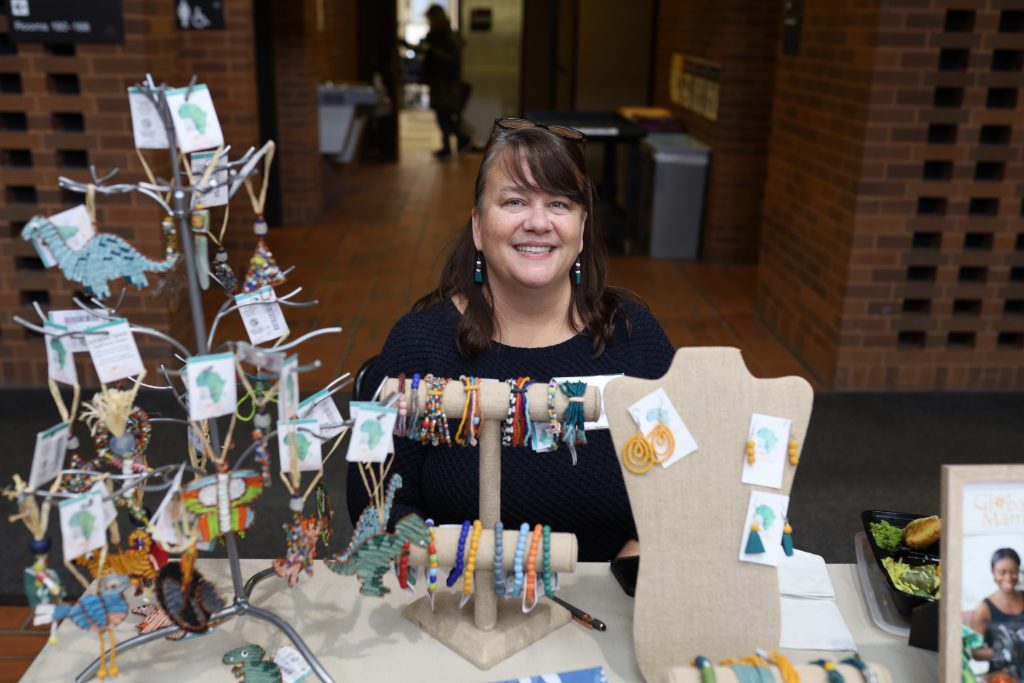
Carol Nelson, the medical program director at Rural Health Care Initiative, which focuses on improving health, nutritional, and postnatal care for women in Sierra Leone, agreed with Leno that including people in the process of making decisions about their lives is one of the most powerful steps an NGO can make. She said that in 2020, her organization hired a local nutritionist named Umu Shour to address issues of child malnutrition as part of a move toward including local perspectives.
“I think it is very valuable that we are working closely with these communities to ensure that they get the care that they need,” Nelson said.
Kristin Doherty, co-founder of Global Mamas, beamed as she showcased an earring set made by women in her organization, which as has more than 400 Ghanaian women entrepreneurs skilled in jewelry and handicraft making. The organization follows the “fair trade” and empowers women to earn a living while doing what they love.
“I’m really proud that we are led by the women that we serve,’ Doherty said. “I think it’s a confidence boost for them.”
Laura Skubic, a development manager at OneVillage Partners, an international NGO based in Sierra Leone, said she was proud to be co-creating solutions for issues like education and mental health. Her organization works to address a multitude of issues in the country, including access to clean water, food, and the economic advancement of women. OneVillage strives to ensure representation in its leadership and works closely with the people it serves.
“All of our program work is led by communities we are working with, and we take that very seriously,” Skubic said.
In a breakout session about news coverage, Fred de Sam Lazaro, creator of the Under-Told Stories Project, brought up the topic of how media decide what is newsworthy on the global stage. He said many believed it was racist when Ukraine was seemingly gaining more media traction for its refugees than African nations. But Lazaro encouraged the audience to frame it differently.
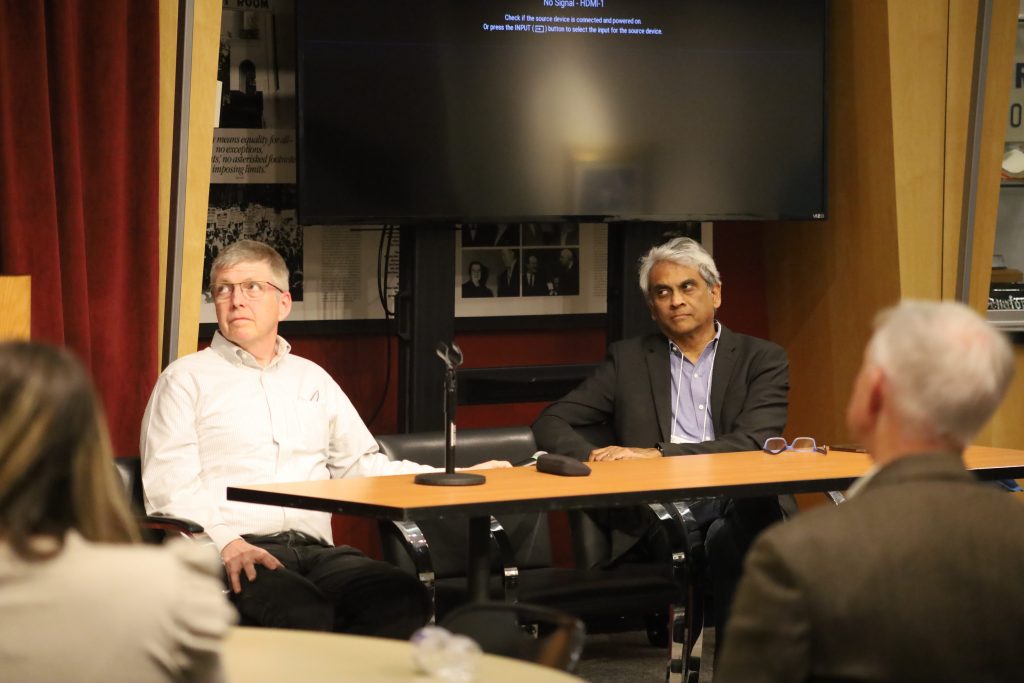
“The nature of news is that it asks, ‘What’s new?’” Lazaro said. “Millions of refugees in Africa is not a new story, but millions of refugees in Ukraine is. It goes beyond a race.”
Leno said that it was important to consider how NGOs themselves frame issues of the countries they serve. One of the most common themes in NGO advertising was the depiction of the regions they operate in. He said it was harmful to continually portray regions as “problem areas,” because of the negative image such language can create of people.
“When you go [to Congo] you see children that just got out of school singing,” Leno said. “You see a woman who is carrying a heavy load on her back, and she turns around to say hello with a smile. That is Congo for me. We don’t see that on the news. We see only the war and the problems.”
About Panashe Matemba-Mutasa, Mshale Reporter
Panashe is a general assignments reporter. She is a graduate of the University of Minnesota and a UC Berkeley Graduate School of Journalism Class of 2025.




